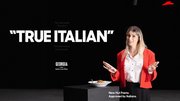Article
Buying in numbers
Purchasing cooperatives ease product costs.

July 21, 2008
Skyline Chili franchisee Mike Misleh used to have as many as three distributors' trucks making deliveries to his locations every week. And each delivery meant paying another fuel surcharge.
So when Skyline's parent company and several operators formed the Skyline Chili Purchasing Cooperative in September 2006, Misleh was one of many franchisees to join. He said he saw it as a way to cut down on the number of deliveries to his stores.
"The goal for all of us was to find one chain distributor that would allow us to put as much food and paper on one truck as possible," he said.
Another goal in forming the cooperative was to consolidate owners' buying power to save costs, said Tom Hannon, president of Skyline Chili Purchasing Cooperative Inc. Now, the cooperative makes purchases of higher volume, ensuring full truckloads, lower overhead costs and even product rebates.
Membership in the Skyline cooperative is elective and includes 99 of the chain's 135 locations. Of those, 61 are franchise locations.
Prior to the formation of the cooperative, Skyline Chili operators purchased proprietary food items such as chili from the corporation, which also served as the chain's distributor. Other items, such as produce and cheese, were purchased from approved vendors.
Now, as members of the cooperative, operators like Misleh order all products for their stores online from one distributor. And they're paying less. Misleh said he has seen savings of 7 percent to 10 percent at his Cincinnati-market chains since joining the cooperative.
But even more important is the peace of mind he now has from knowing that his "interests and goals are aligned" with that of the cooperative and the parent company, which also purchases from the cooperative for its company-owned stores.
"We are absolutely on the same page that they are now," Misleh said. Fostering trust
Dennis Clabby, vice president of Subway's Independent Purchasing Cooperative (IPC), said that peace of mind is a benefit of moving proprietary-product purchasing away from the parent company and into a separate entity.
When franchisees are required to purchase items from the parent company "the franchisee thinks there must be back-end money coming in to the franchisor that's included in the price of the food," Clabby said. "So by moving that purchasing to an independent group owned by the franchisee, that distrust goes away."
At Subway, one advantage of IPC membership is that now all franchisees pay the same price per item, no matter their location. All Subway franchisees in the United States, Canada and Puerto Rico are required to be members of the cooperative, which formed 11 years ago for much the same reason as Skyline's.
Clabby said the IPC looks at the price of delivering products to different areas and charges all members a normalized price. The difference in pricing — along with the nominal add-on fee IPC usually charges per case ordered — is counted as income.
As a not-for-profit entity, IPC's revenue above the board-of-director-approved budget is returned to members in yearly dividends, increasing members' savings. Last year IPC member dividends averaged about $2,900, Clabby said.
Skyline's cooperative also pays quarterly dividends to its members, which essentially cover members' sourcing fees. The cooperative charges members a 20-cent sourcing fee per case ordered.Those fees become the cooperative's income — along with product rebates. The cooperative pays 90 percent of its net income to members in the form of dividends.
Last year, Skyline cooperative members earned back an average of 40 cents per case ordered, Hannon said.
In the end, "it did not cost you a dime, and you got better pricing," he said.
Savings through the supply chain
Another benefit of a purchasing cooperative is moving that function out of the corporate offices and into its own entity, providing the agency the opportunity to focus solely on all elements of purchasing — and saving members money.
In IPC's first year, it lowered franchisees' average food costs more than 3 percentage points. Last year, the cooperative saved its more than 22,000 stores at least $130 million through negotiating costs and avoiding unnecessary expenses, Clabby said.
"Our primary mission is to find the highest quality product that meets the gold standards and deliver it to the franchisee at the lowest landed cost, so we stay very focused on finding ways to lower franchisee costs," he said.
The opportunity to focus only on purchasing also allowed IPC to look deeper into the supply chain to its raw materials. It now has contracted prices for the chain's sandwich ingredients, including the spices that go into making its pepperoni and Genoa sausage.
The cooperative created a more efficient supply chain by allocating product distribution into regions, and product shipments have been optimized so that only full truckloads go out.
"We contracted the logistics to move products from point to point, so we're pretty integrated throughout the supply chain," Clabby said.
IPC also negotiates prices for services and commodities, which has brought much needed savings as the economy has tightened. Thanks to the cooperative's locking in commodities prices a couple years ago, Clabby said, it protected operators over the last few months as food costs have risen.
Hannon said the Skyline cooperative also is exploring ways to contract services for its members. And it is in talks with other chains to explore the possibility of bringing them into the cooperative to boost its buying power even more.
| ||||||||||||||||||
Hardy Grewal, Subway development agent for Los Angeles County and a franchisee for 19 years, said one benefit of IPC membership is the standardization of non-proprietary products, such as tomatoes.
"It brought a lot of consistency to our products," Grewal said. "Now it's standardized. The formulas are the same. The tomatoes do fit on the sandwiches now."
He also appreciates the savings — an average of 5 percent to 6 percent for his stores — to his bottom line as well as time.
"It's a lot less headache for the franchisee," Grewal said. "We don't have to think about procuring produce and other services."
 ChatGPT
ChatGPT Grok
Grok Perplexity
Perplexity Claude
Claude









